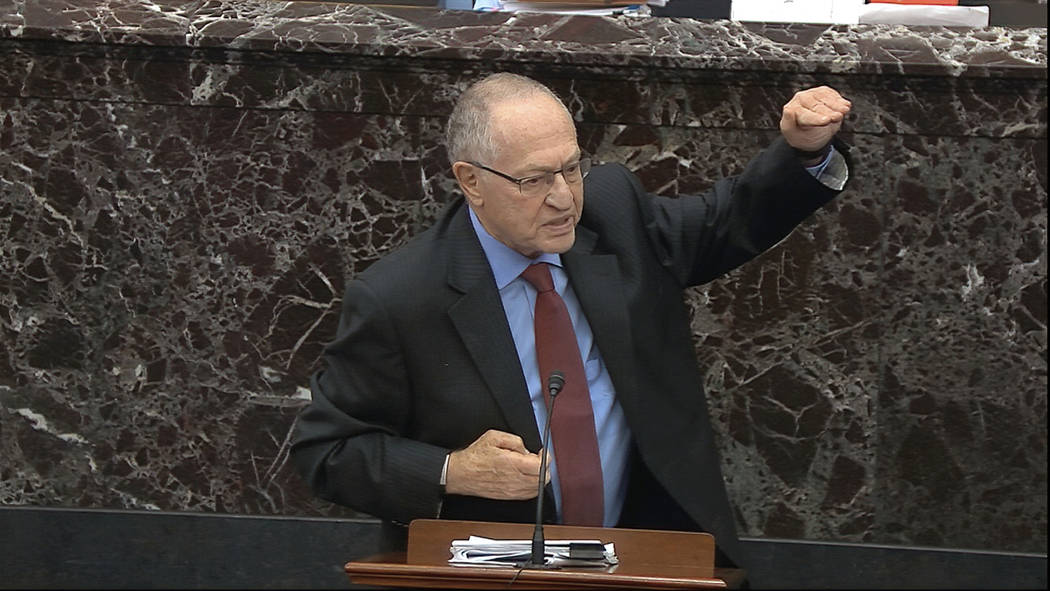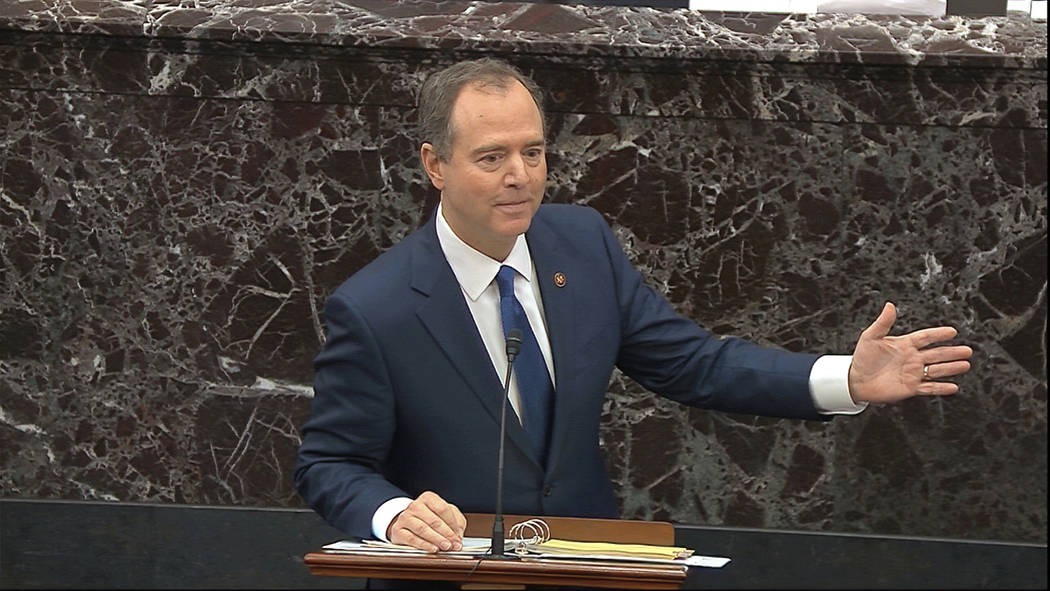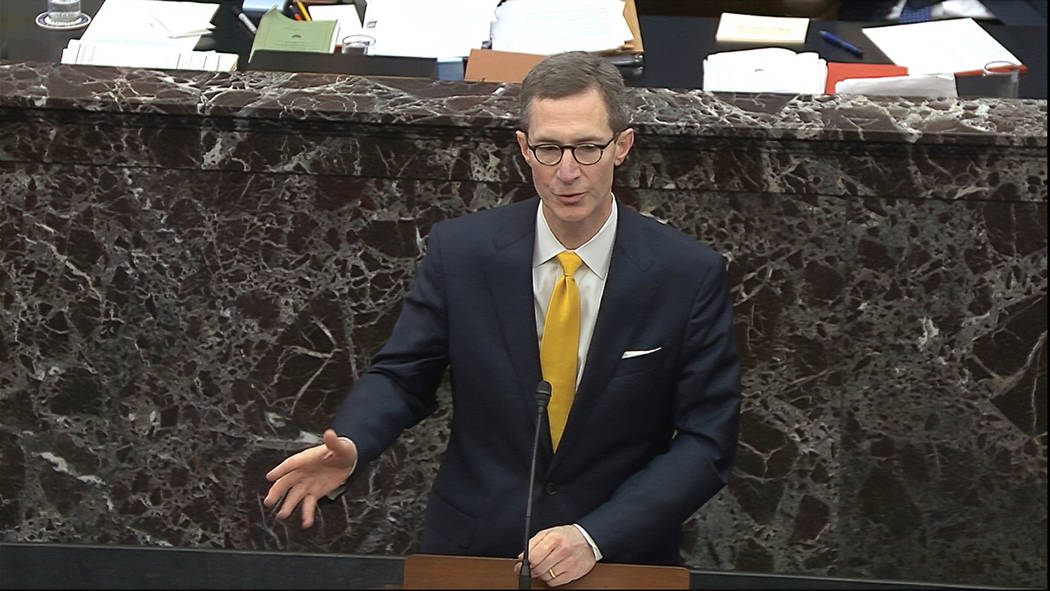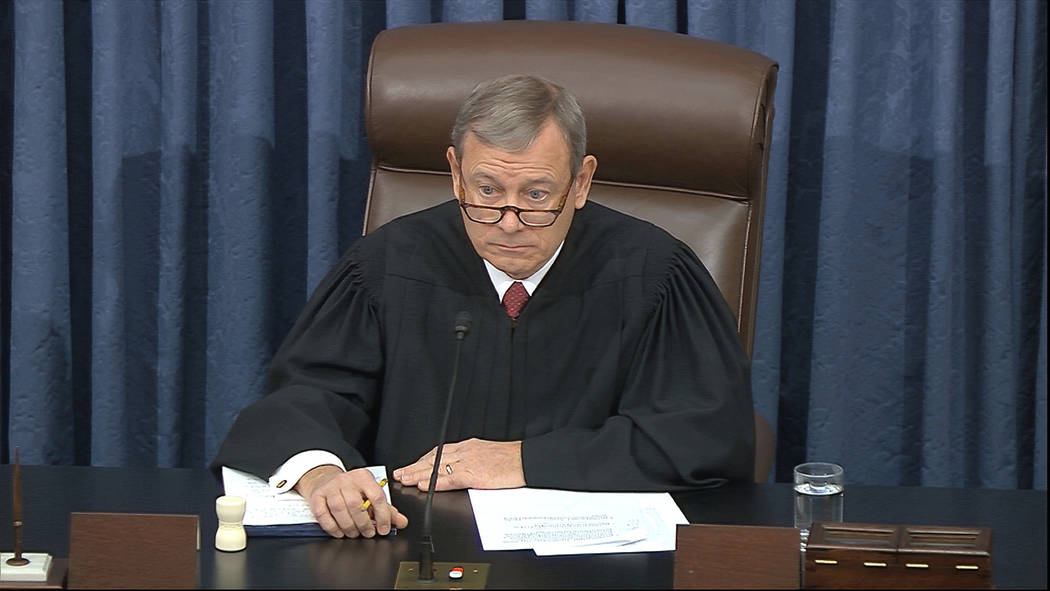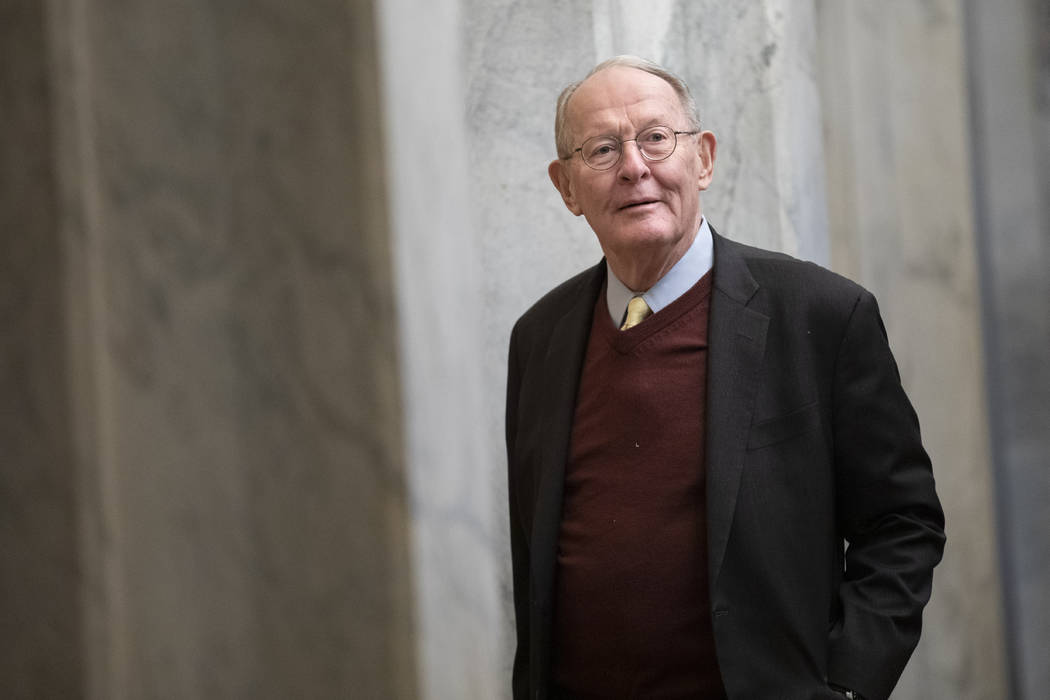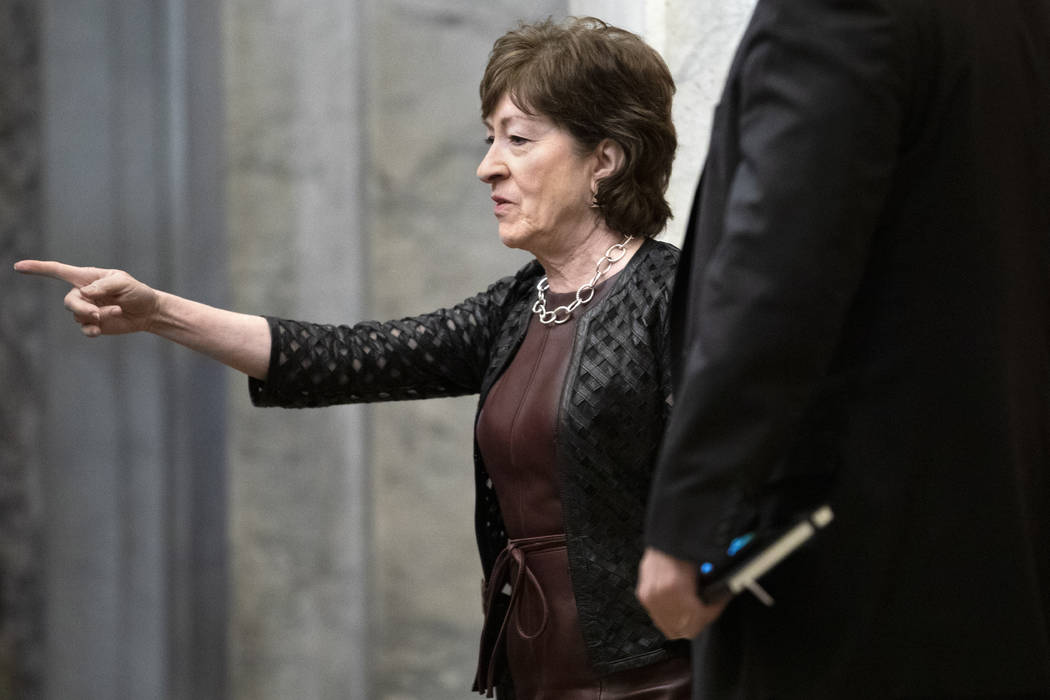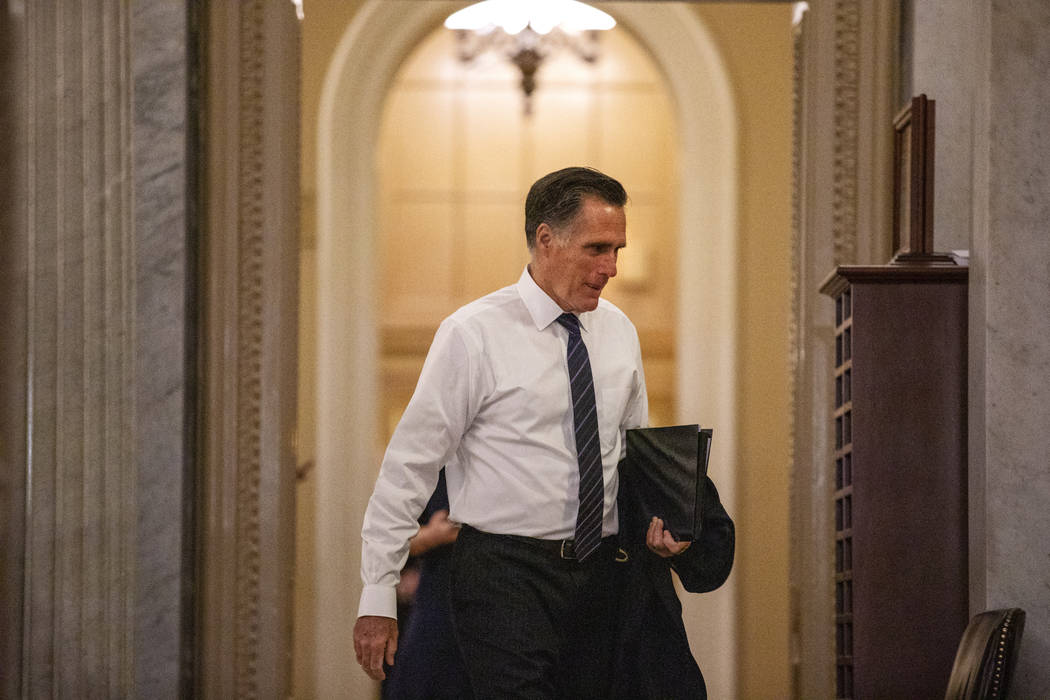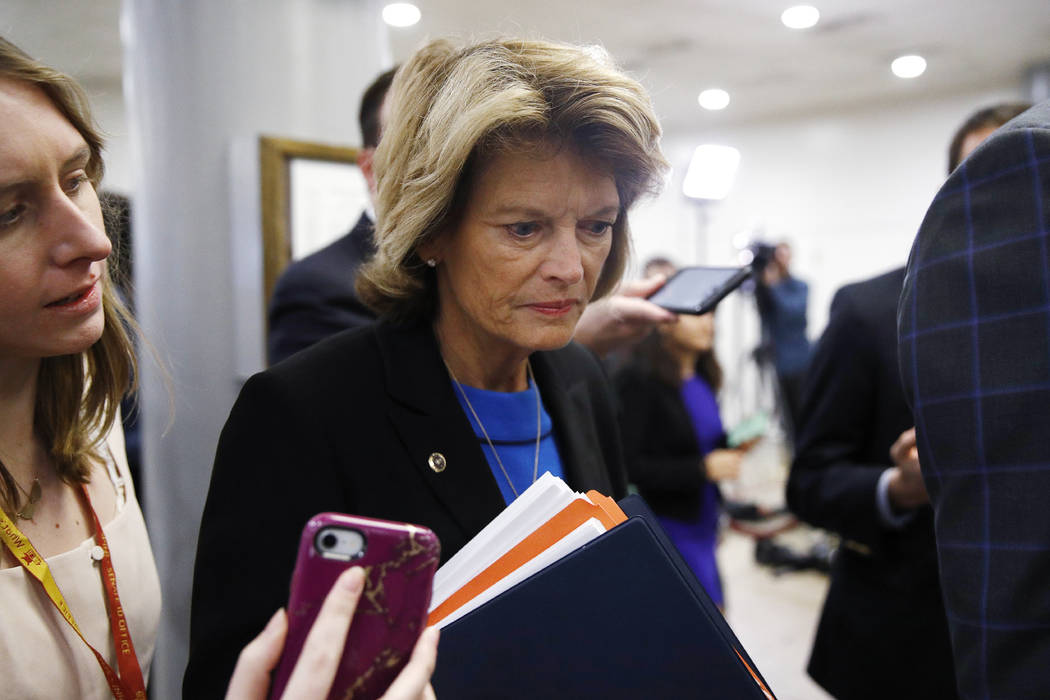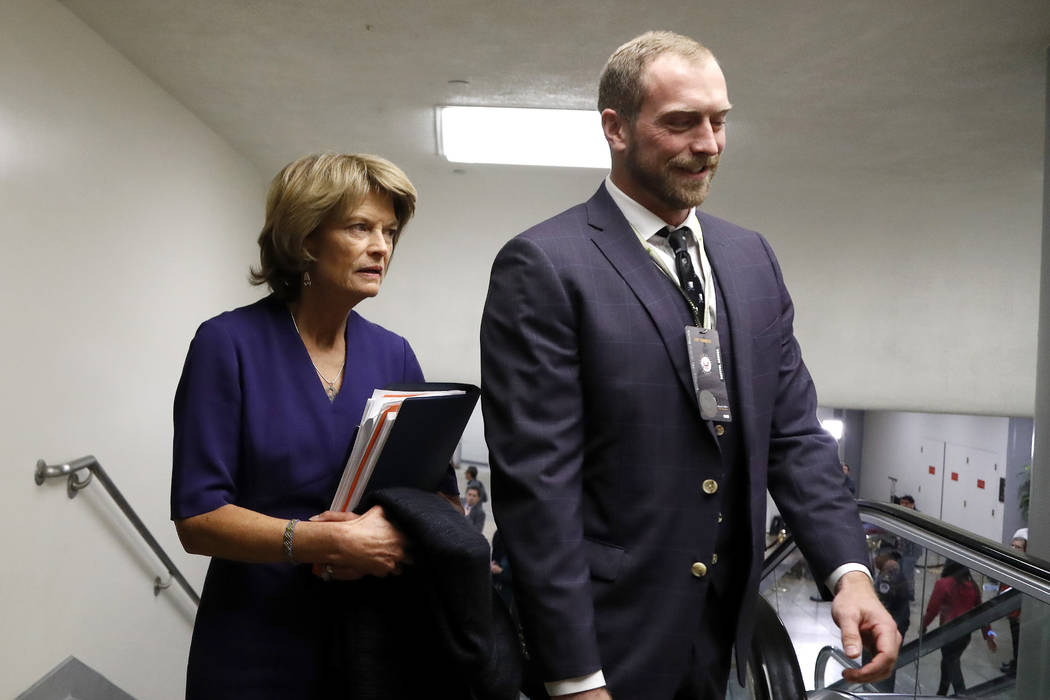Impeachment key swing vote, Lamar Alexander against allowing new witnesses
WASHINGTON — Republican leaders grew more confident Thursday that they had the votes to block a motion to call additional witnesses in President Donald Trump’s impeachment trial after a key senator declared he would vote no on the issue.
“There is no need for more evidence,” Sen. Lamar Alexander, R-Tenn., said in a statement late Thursday.
His move gives Republicans a vote needed toward cutting off the impeachment trial and the ability to push toward acquittal of Trump as early as Friday.
Senators continued questioning of House impeachment managers and the president’s lawyers for a second day. But lawmakers were looking ahead to a Friday vote to determine whether former national security adviser John Bolton would be called as a witness in the trial.
Bolton upended the trial earlier this week with allegations in a book draft that Trump withheld nearly $400 million in military aid to Ukraine to force that foreign country to announce a political investigation into rival Joe Biden.
Trump has vehemently denied the charge, and his lawyers have argued that, even if true, it would not constitute an impeachable offense.
Democrats pressured Republicans to vote to call Bolton as a witness, citing public opinion polls showing support for more testimony as the Senate determines whether to convict or acquit the president on two articles of impeachment passed by the House.
But over the past couple of days, GOP senators have moved back in line with Senate Majority Leader Mitch McConnell, R-Ky., who wants a quick ending to the 10-day trial. Alexander’s decision helped that cause.
“I think the House has failed to make the case,” said Sen. John Barrasso, R-Wyo., the Senate Republican Conference chairman. “I’m ready to vote and I’m ready to vote now,” he added.
Schedule for Friday released
Barrasso, the No. 3 leader in the Senate, released a schedule for Friday that calls for four hours of debate on the motion for witnesses and then a vote.
If the vote to call witnesses fails, the Senate would move to motions to conclude the trial, which would be taken up until completion late Friday or early Saturday morning.
To remove the president, the Senate would need to muster 67 votes, which would require 20 Republicans to join Democrats, assuming all of them would vote to remove Trump.
Republicans want a vote to acquit, and pressured Democrats in competitive states to vote with the GOP to provide a bipartisan end to the trial on charges that Trump abused his office by coercing a foreign country to meddle in an election and then obstructing a congressional investigation.
Several Democrats were considering a vote to end the trial and acquit the president, including Doug Jones of Alabama, Joe Manchin of West Virginia and Kyrsten Sinema of Arizona.
It was still unknown how they would vote Friday.
Still, Republicans were optimistic.
“We are that much closer to getting an acquittal of the president,” Rep. Jim Jordan, R-Ohio, a Trump ally, told reporters during a break in the Senate trial.
“I think the real question is how many Democrats are going to vote to acquit the president,” Jordan said.
Spotlight on moderates
Democrats, meanwhile, were watching moderate Republicans who have indicated an interest in calling Bolton as a witness to further explore the president’s decision to seek an announcement of an investigation into Biden by Ukraine.
Sen. Susan Collins, R-Maine, with Sen. Mitt Romney, R-Utah, and Sen. Lisa Murkowski, R-Alaska, asked the president’s lawyers whether Trump mentioned an investigation into Biden before the Democrat announced he was seeking the party’s presidential nomination.
White House deputy counsel Patrick Philbin said he did not have an answer to the question.
Romney has made clear he will vote for witnesses, according to The Associated Press. Collins said late Thursday that she would also vote with Democrats to call further witnesses.
Murkowski said she was still considering whether to vote for witnesses.
In his statement Thursday night, Alexander said it was inappropriate for the White House to seek the investigation into the Bidens, but he also said an impeachment should not be partisan and noted that not one House Republican voted in December on the articles passed by a Democratic majority.
“I worked with other senators to make sure that we have the right to ask for more documents and witnesses, but there is no need for more evidence to prove something that has already been proven and that does not meet the United States Constitution’s high bar for an impeachable offense,” he said.
Democrats admit uphill battle
While the Senate vote on the motion for witnesses remained fluid, Democrats admitted that they faced an uphill battle in the upper legislative body where Republicans hold a 53-47 majority.
It takes only a simple majority of 51 votes to call or block more witnesses.
“I think every senator on each side has come to a conclusion,” said Rep. Mike Braun, R-Ind., but he acknowledged that there were “two or three on each side” who left the outcome up in the air.
Democrats argued that Republicans feared a lengthy trial, permitting time for more damaging information to become public.
Acquittal would be a victory for Trump, who is scheduled to address the nation on prime-time television Tuesday with a State of the Union address before a joint session of Congress.
Trump has called the House impeachment a “hoax” and a witch hunt. But Democrats note that the president has blocked witnesses and documents in the House impeachment inquiry.
House Speaker Nancy Pelosi, D-Calif., said failure by the Senate to hear additional witnesses and view documents that have been blocked by the White House would not equate to acquittal.
“He will not be acquitted,” Pelosi said. “You cannot be acquitted if you don’t have a trial, and you don’t have a trial if you don’t have witnesses and documentation.”
Eyes on chief justice
With the possibility that lawmakers from both sides vote across party lines and present a tie situation, Pelosi suggested that Supreme Court Chief Justice John Roberts, who is presiding over the Senate trial, cast the deciding vote.
Asked if the impeachment and trial would change Trump’s behavior, Pelosi responded: “Does the president know right from wrong? I don’t think so at all.”
The Senate trial opened Thursday with a second attempt by Sen. Rand Paul, R-Ky., to pose a question that would reveal the identity of a whistleblower who initially alerted national security officials that Trump sought a political favor in the July 25 call to Ukrainian President Volodymyr Zelenskiy.
Roberts said he declined “to read the question as submitted.”
Democrats portrayed the incident as another attempt by Trump and his supporters to strong-arm critics and politicians to back questionable activities condoned by the president.
Contact Gary Martin at gmartin@reviewjournal.com or 202-662-7390. Follow @garymartindc on Twitter.



